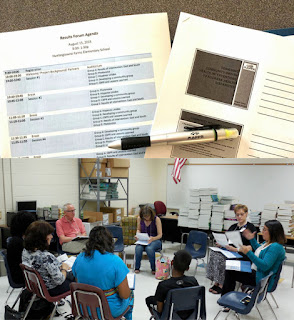October 24-28, 2015 marked the 43rd Annual North American Primary Care Research Group (NAPCRG) Meeting, and MAPPR team members traveled to Cancun, Mexico to be part of it all. NAPCRG holds the annual meeting in venues throughout North America, and this year chose Mexico in order to develop a “deeper understanding of its health system, the roles of primary care and primary care research, and how those roles can be strengthened in all our countries." The program was a mix of presentations, workshops, and social activities to encourage networking and exploration of the local culture.
MAPPR team members presented 9 research posters on topics including asthma, virtual healthcare, diabetes management, and risk modeling in research. Dr. Anthony Caprio, Associate Professor for the Division of Aging, in the Department of Family Medicine for Carolinas Healthcare System, presented, “A Call to Action: Advance Care Planning and End-of-Life Care in the United States” to participants on Monday October 26th. The following day, Director of Research Dr. Hazel Tapp moderated a discussion on Infectious Diseases and led a workshop on PBRN Best Practices.
"Attending the NAPCRG conference was a wonderful opportunity to showcase the diverse range of topics being researched by the MAPPR team," says MAPPR team member Madelyn Welch. "We presented a variety of projects and covered a range of research methods being used, such as dissemination and implementation research, ethnography interviews, risk stratification modeling, and quality improvement. I especially enjoyed networking with other researchers and discovering the new and exciting studies being conducted by our peers in primary care research across North America."
For more information on the conference, please visit www.napcrg.org/Conferences/2015AnnualMeetingArchives






